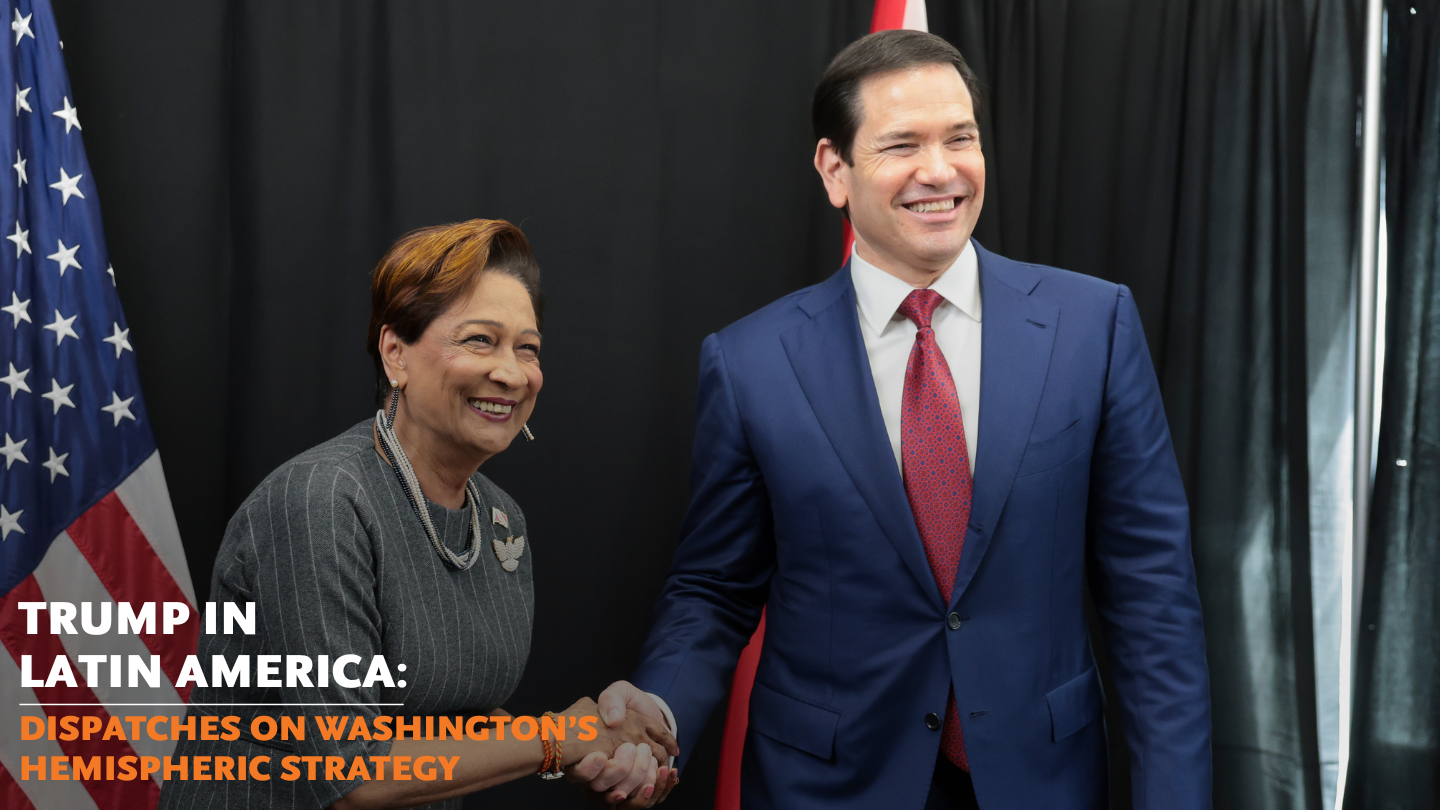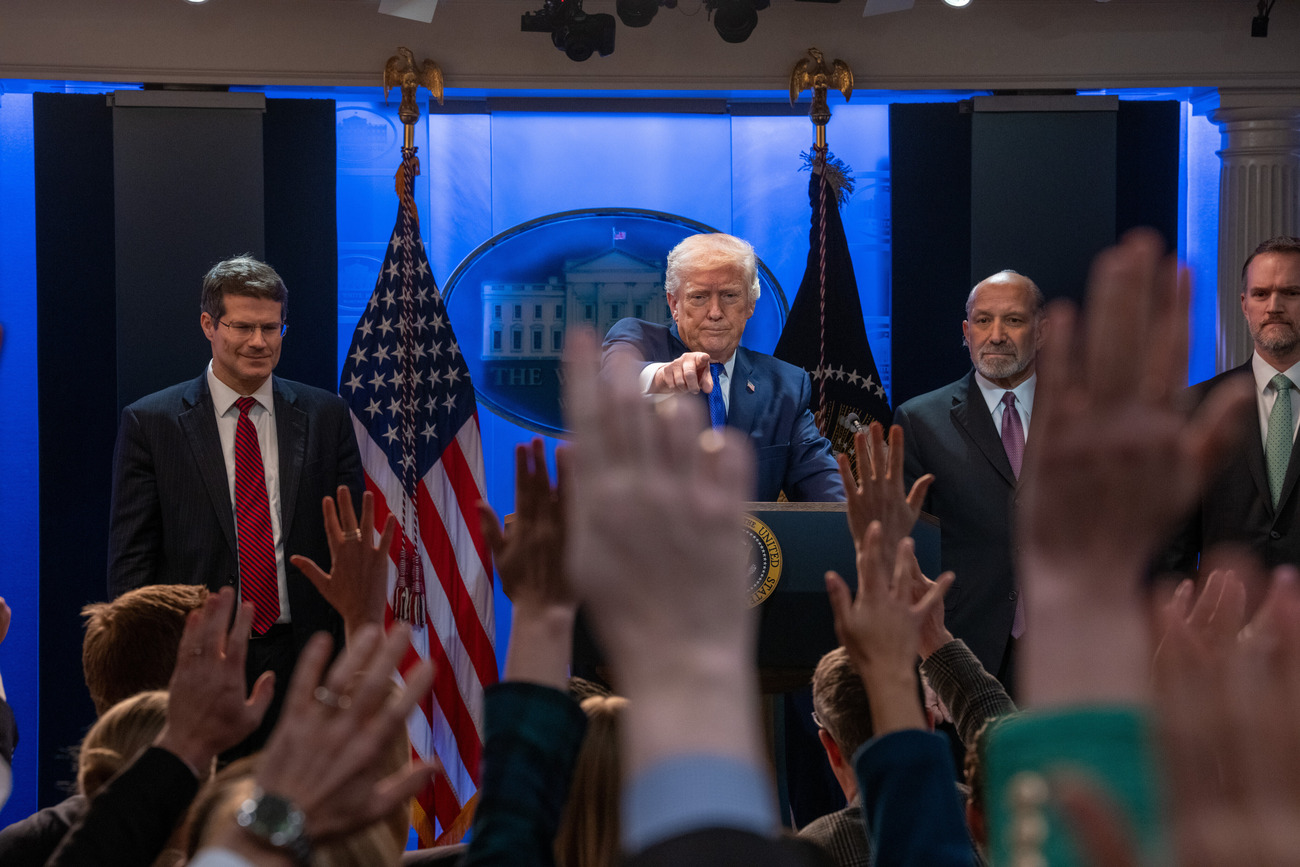Congressional Trips Overseas Are Necessary for U.S. Policy
Congressional Trips Overseas Are Necessary for U.S. Policy
Unfortunately, media and constituents at times misconstrue trips abroad as flamboyant travel by members of Congress at taxpayers’ expense.
Next week the U.S. Congress will wrap up its summer session and leave the heat and humidity of Washington, DC for its August district work period. For many Members of Congress this may be a time for personal vacation, a time to hold office hours in their district, or a mix of both. District work periods include greeting constituents at summer fairs, shaking hands, kissing babies, and riding in convertibles during holiday parades. District work periods are a time for politicians to continue traditions that have existed as long as there have been public offices—rubbing elbows with voters. However, the lull in voting gives Members time to get away from Capitol Hill to participate in another important tradition just as historic: the opportunity to convert from citizen statesmen to citizen diplomats.
Ever since 1776 when the Continental Congress commissioned one of its own, Benjamin Franklin, to travel to France and represent the United States, Members of Congress have had an important role in foreign policy. As protectors of the purse string, the ability to gain first-hand knowledge of the United States’ work abroad is a valuable oversight tool in our system of checks and balances. The executive branch handles the U.S. government’s work overseas, but the U.S. Congress authorizes and approves funding for U.S. programs abroad and shoulders the burden of oversight responsibility. Members of Congress need to travel to our embassies, consult with our ambassadors, and hold dialogue with foreign leaders in their sovereign lands to witness for themselves whether current U.S. policies are successful.
Unfortunately, media and constituents at times misconstrue trips abroad as flamboyant travel by Members of Congress at the expense of the taxpayers. Images of chartered planes, shopping trips in fancy bazaars, decadent hotels, and elegant dining flood the imagination. Just recently, a trip to Italy by House Speaker Nancy Pelosi drew criticism for its reputed inclusion of fancy shopping trips and accommodations that exceeded the budget of an average middle-class traveler. Yes, shopping happens and sightseeing occurs. Yet, the vast majority of trips taken abroad have served our country and its citizens well. We should not forget that responsible travel serves an important role in expanding and defending U.S. interests abroad.
As a former staffer on the House Foreign Affairs Committee, I traveled on a handful of delegations. For every nice dinner, there was a brown bag lunch, for every hour at a fancy reception, there were two hours in a hotel conference room, and for every ride in a motorcade, there were three rides in an overcrowded minibus. The first meeting may start just an hour or two after a 12-hour flight had landed and a day packed with meetings would not end until finally arriving at the hotel that night. Yes, a Member of Congress may want to shop for local art and souvenirs, but a small pause in a 12-hour workday is excusable.
My last congressional delegation was a trip to the Dominican Republic and Haiti. The schedule included a tour of a shipping port that received U.S.-funded security assistance. The purpose was to prevent unsecured cargo containers from ever reaching the United States. We also visited a sugar plant. Sugar, and the U.S. tariffs on foreign imports of sugar, is a controversial subject and we were seeing first hand the other side of the story. We visited government subsidized and non-subsidized housing of sugarcane workers and witnessed the heart wrenching poverty in which some people of this hemisphere live. We were able to visit a Haitian orphanage that receives funding by the U.S. Agency for International Development, and met with leaders of the U.N. peacekeeping team in Haiti, an initiative the U.S. government helps fund. Not to mention, we met with the presidents of each country to discuss areas of mutual concern. It was a hefty schedule packed into just a few days. Of course, thanks to the ambassadors, we did get to participate in a nice reception at both of the embassies. But the time spent at receptions is for talking to the ambassadors and embassy staff, U.S. investors, and local humanitarian organizations and non-profits.
For the most part, when a U.S. Member of Congress is traveling to a region, it isn’t just so he or she can snap pictures in front of the Taj Mahal or tour Machu Picchu. Of course, when a famous landmark does factor into the trip there shouldn’t be criticism over a picture or two. Nonetheless, the access and socialization between our elected officials and foreign leaders remains the main attraction. More than likely, the travel schedule is filled with meetings that may include civil society groups, political leaders, embassy officials, visits to U.S. foreign aid recipients, and time factored in for the constant hustle and bustle from one meeting to another—all concluded with a lengthy formal dinner at the end of a long day.
Congressional delegations are a vital tool that allows elected officials to gain a better understanding of whether policies designed in Washington are working abroad. Just as Benjamin Franklin’s stay in Paris brought us an alliance that cemented our freedom with the French assistance at Yorktown, congressional delegations remain a crucial part of enacting purposeful and successful legislation. As constituents, we should chastise the waste of flamboyant trips but also support responsible congressional work overseas and understand that visiting friends abroad is one of the best ways to remain in good global standing. Use of Government and Military planes allow for as many stops as possible that will fit into a lull of voting and not just for comfort reasons. And the rare occasional downtime is a good opportunity for Members of Congress to step outside of the hotel or conference room and to actually see and experience the place they are visiting.
Having an elegant dinner in a foreign country is a nice benefit for a Member of Congress that a taxpayer may view as overindulgence or a columnist may criticize. However, having the president or a minister dine with Members serves in the best interests of the United States. It would be sad to think Ben Franklin never participated in an elegant dinner and missed a chance to more informally engage with his hosts in Paris because of criticism from back home.
Brian Wanko is Director of Government Relations at the Council of the Americas.








